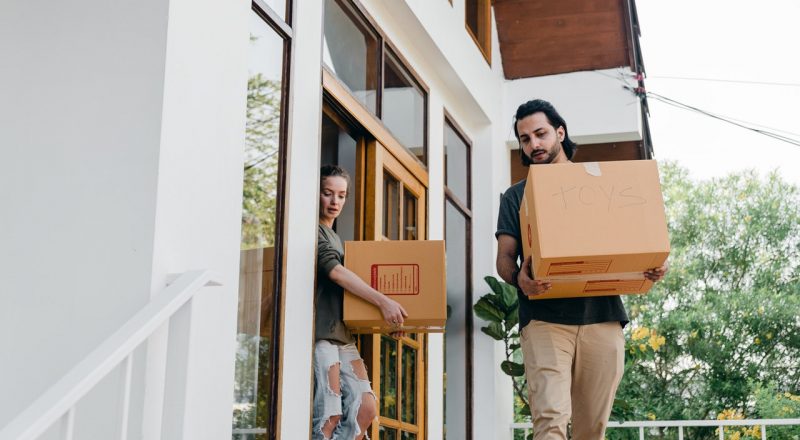Today’s packaging industry has a variety of materials to choose from, including aluminum tins, cardboard boxes, metal custom tins, plastic bottles and packages, glass containers, and more. Apart from the benefits that each material offers the product, companies also try to grab customers’ attention with creative and eye-catching packaging design. However, the unsustainable extraction and production methods and the non-recyclable nature of many materials, especially plastics, have created a global crisis in the form of waste pollution. Plastic is an artificial material, which does not decompose like other natural materials and can stay in landfills for centuries. This has led to a severe crisis that has direct health and environmental impacts on human beings.
Fortunately, in recent years, information campaigns and drives have brought about a pleasant change. People are becoming more aware of their life habits, and many are actively trying to shift towards a sustainable, eco-friendly lifestyle. At the same time, an increasing number of customers worldwide are joining the green revolution; a significant shift in the packaging industry is the consumer demand for a switch to more sustainable and eco-friendly packaging. Thanks to increasing pressure from consumers and certain government policies on plastic, companies are now switching to sustainable and green packaging solutions. This blog will outline some of the best alternatives to plastic packaging and how these materials can save you money in the long term and benefit the environment at the same time.
Aluminum: What better material to start our list with other than aluminum. When it comes to sustainable and green packaging material, aluminum is considered a champion, among others. It is the perfect material for new start-ups that want to associate a green image with their products. Typically, aluminum is used to make aluminum bottles, custom tins, cans, and more. The combination of qualities that aluminum possesses is exceptional. Aluminum is a naturally occurring material, and it is entirely recyclable. Aluminum can be recycled again and again without any effect on its quality. It takes only a fraction of the energy to recycle aluminum rather than making new aluminum from virgin ore. Even though the world has large deposits of aluminum, it is still much more feasible and economical to recycle it. It is the most common metal found on the surface of the earth. This helps to reduce energy bills and carbon emissions simultaneously. Choosing aluminum for your products means you will decrease the overall carbon footprint for your product and business.
Besides being eco-friendly, aluminum is also food and cosmetic-safe, as it is entirely BPA-free. No harmful chemicals are used in the manufacturing process of aluminum. It is a non-porous material. This makes aluminum suitable to store cosmetic and food products as they need protection from air and moisture in the ambient atmosphere, increasing the product’s life span and maintaining its quality. Aluminum is also rust-resistant, which further enhances the product’s safety and avoids any unwanted results. Also, aluminum is a ductile material that can be easily molded in different shapes and sizes to manufacture packaging material. This is great, especially for companies that are looking for custom-designed packaging to meet their needs and attract customers to their unique product. Despite being ductile and lightweight, aluminum is a strong metal that can withstand extensive wear and tear during transportation. Such lightweight material adds minimal weight to the product itself, making handling and logistics economical.
Glass: Glass has been in use as a packaging material for centuries. It is most commonly used in the cosmetics industry, especially for a premium line of products. Its elegant style and premium feel add a touch of luxury to the product. In recent years, glass jars and bottles have also gained popularity for storing solid food and drinks. It also perfectly aligns with the green revolution goals, as it is recyclable and a natural material, making it a sustainable packaging material. Just like aluminum, the naturally occurring non-porous and leakproof surfaces of glass acts as a barrier against air moisture, oxygen, and harmful bacteria present in the atmosphere. Thus, overall making glass a food-safe and cosmetic safe material and an excellent choice in the consumable industry.
Glass and aluminum are amongst the best choices for packaging material. However, glass has a few shortcomings. It has a high cost of production compared to aluminum. Even recycling glass is expensive; furthermore, the glass loses its quality after recycling it a few times, which also adds to the overall cost of the material. It is also a heavy material; this means it adds significant weight to the product itself. Its fragile nature demands extra care when transporting the goods. The excess weight and fragility of glass can create hurdles and economic losses when considering the logistics of the product.
Cardboard: Cardboard boxes are found almost everywhere; they are used to store the already packaged goods in bulk quantities. Cardboard and paper are organic materials, but their overuse for decades has created a problem for landfills worldwide. However, cardboard and paper can be easily recycled and to make your company eco-friendlier. Using recycled cardboard and paper can help fight the waste management problem; it is optimal to use post-customer or post-industrial recycled paper and cardboard. This will help your start-up save some capital and reduce the overall carbon footprint of the product.
In today’s era, going green and sustainable is no longer a choice. It is instead demanded by customers and government alike. Customers are rejecting plastic packaging as part of the green revolution. It is an excellent idea for start-ups to tag along with this trend and move towards a more sustainable business model.
